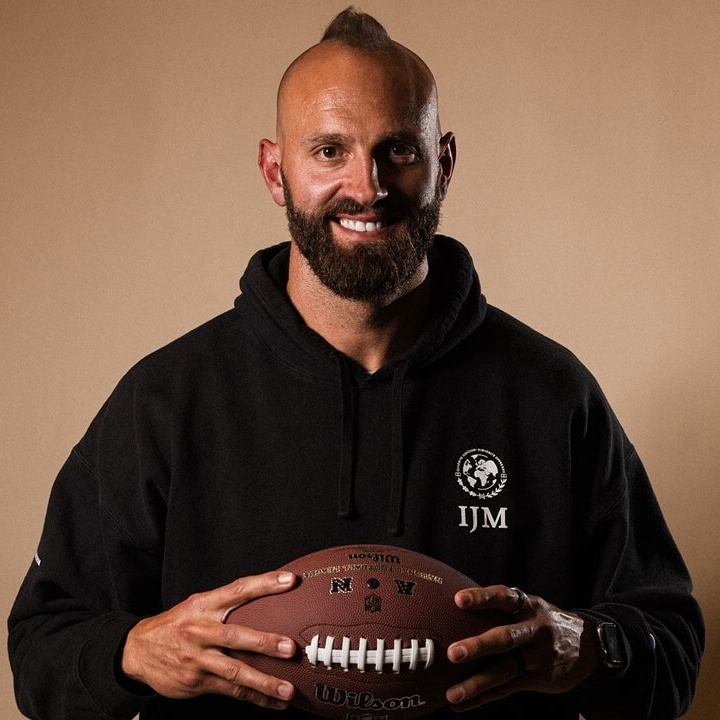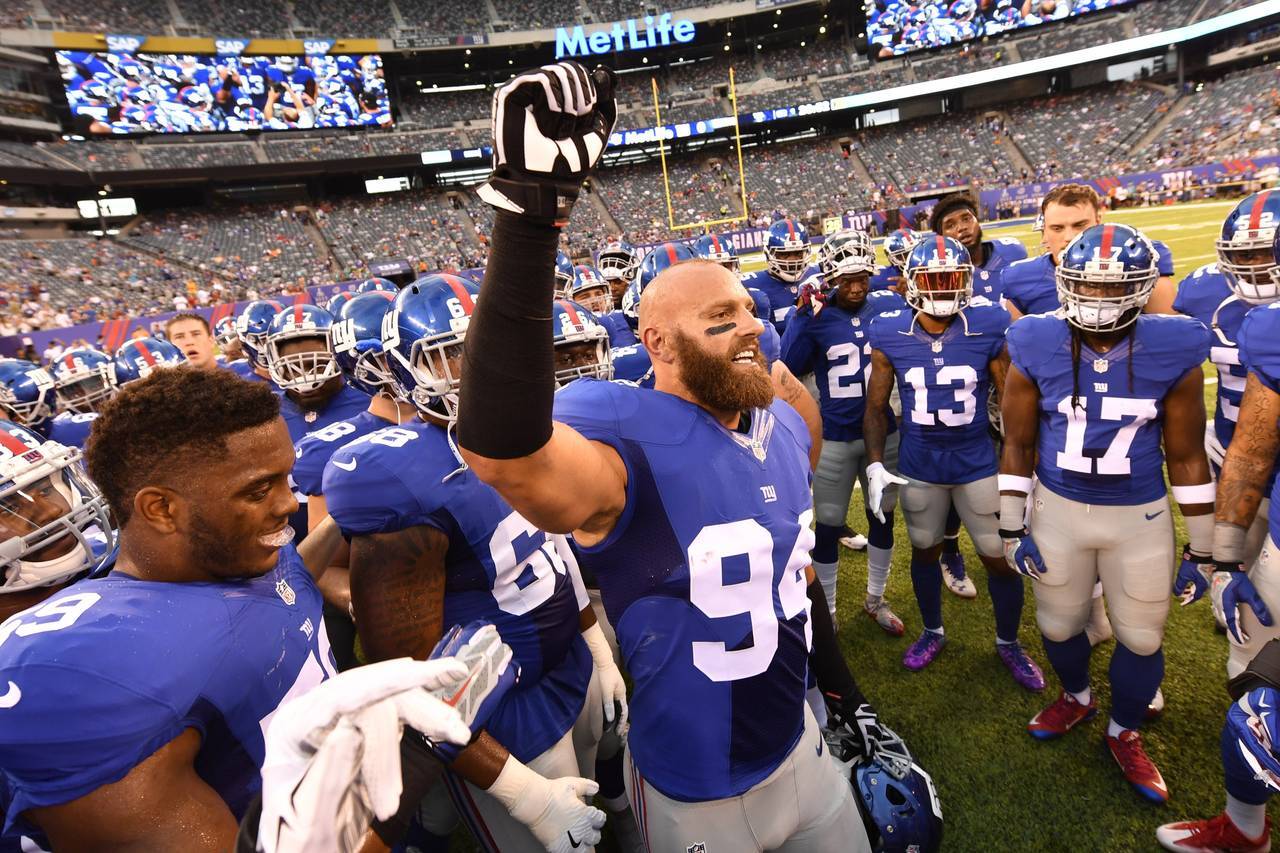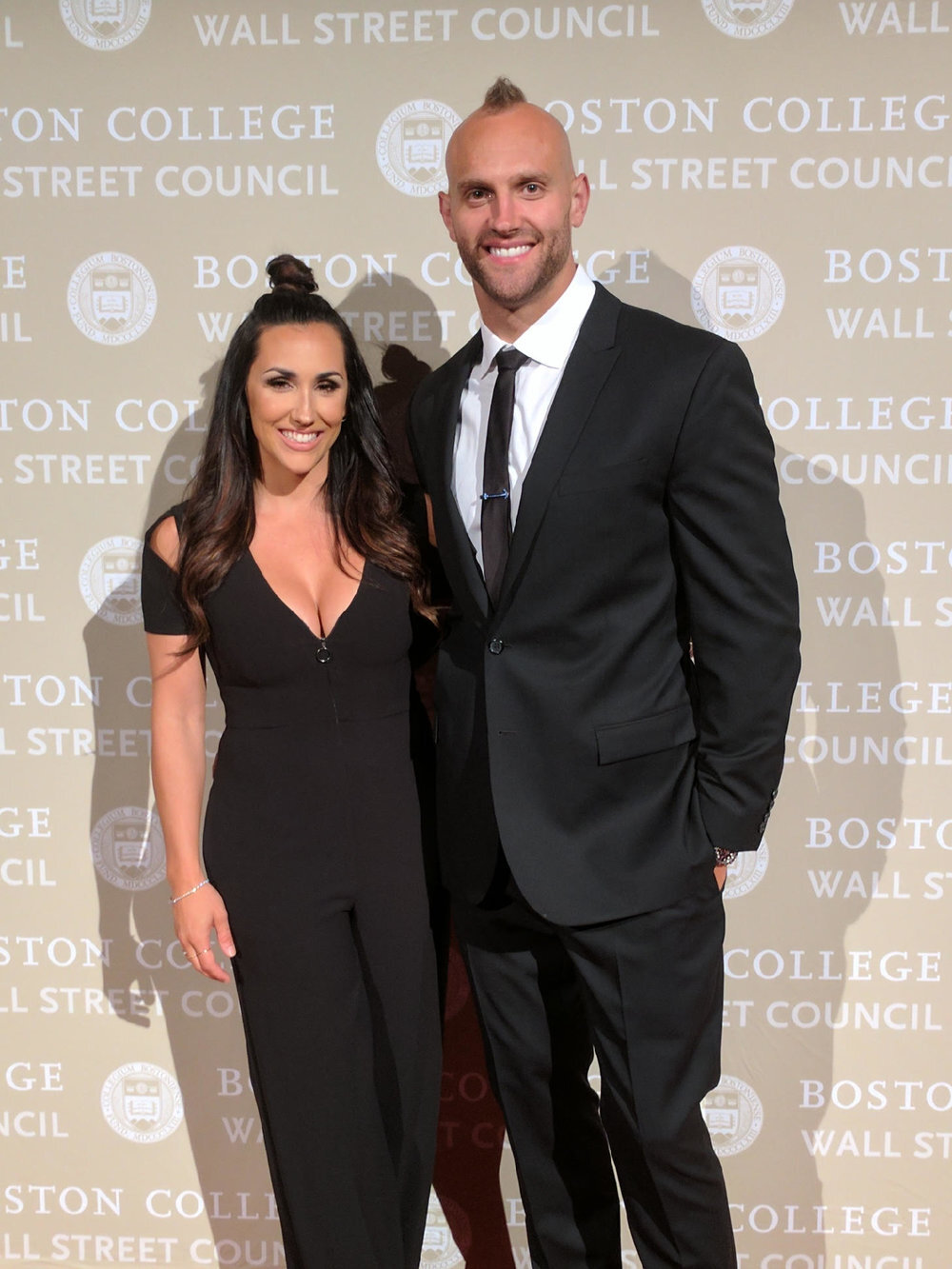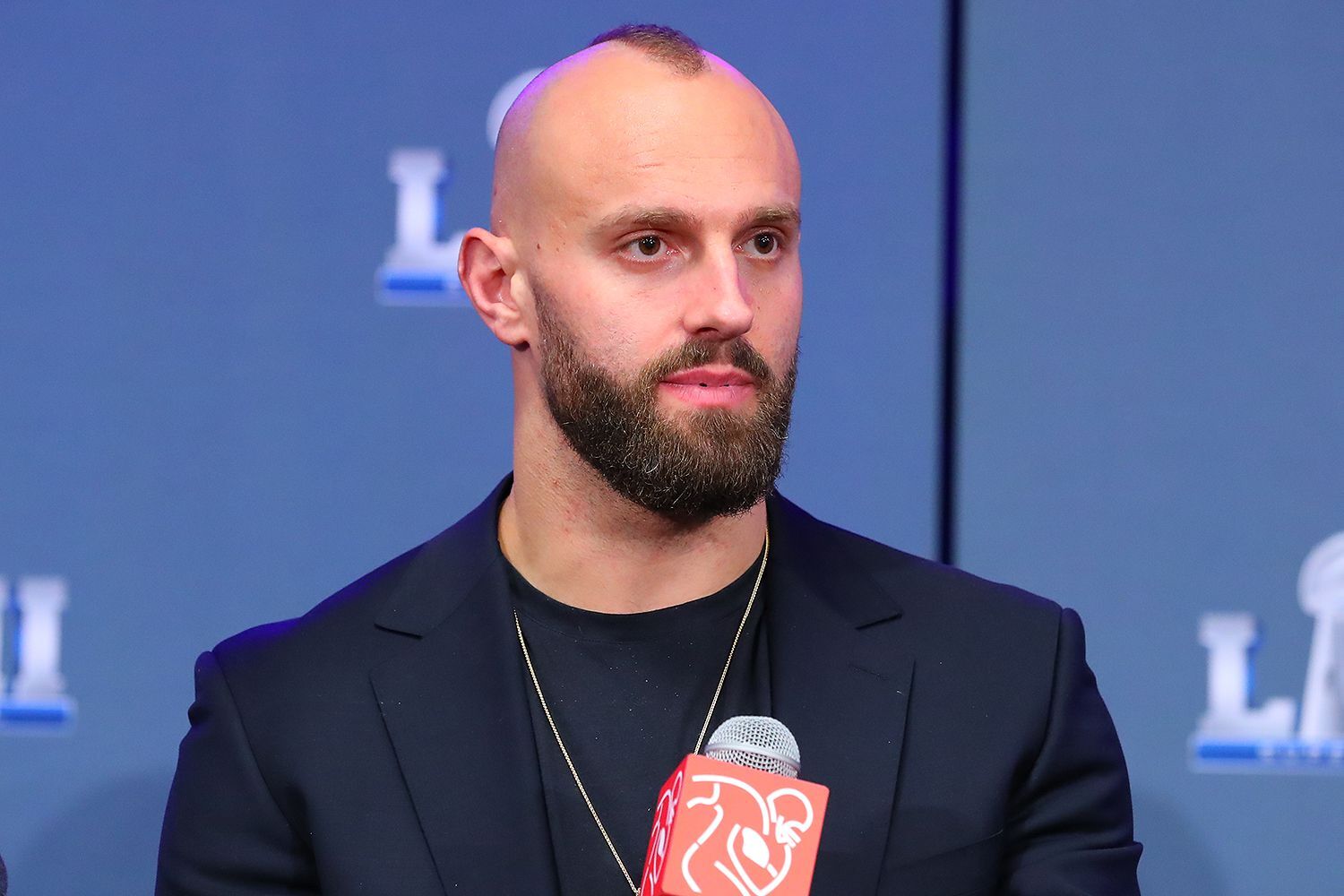
Catching Up With Former Player Rep: Mark Herzlich
Former NFL linebacker Mark Herzlich spent his entire 7-season career with the New York Giants and became a Super Bowl champion with the team in 2012. Mark attended and played football at Boston College where he earned accolades such as ACC Defensive Player of the Year, Collegiate Rudy Award, and First-team All-American. We caught up with the former NFLPA Player Rep and Executive Committee member and he gave us insight into his life during and after football.

What inspired you to become a Player Rep?
I think the biggest thing for me is that I like to be involved with the organizations I work with. I came into the NFL during the lockout year, so we had the NFLPA hold a rookie symposium because there wasn't one from the NFL. The NFLPA did a Business of Football Conference down in Florida. I went to that and got introduced to the NFLPA early in my career. I basically thought like, 'Hey, this is the governing body, this is what I could get involved with to just learn more about how the NFL and the NFLPA operate?' There was a guy on my team, Zach DeOssie, he was the Player Rep and we didn't have any alternates. So my rookie year, since we didn't have voting or anything because it was the lockout he said, “Hey, do you want to come as an alternate to the NFLPA Rep meetings?” I went right after my rookie year to the first meeting and then just thought it was super interesting and intriguing, and it mattered, so I wanted to continue to be a part of it.
What lessons were you able to take away from your experience as a Player Rep?
I had no exposure to the NFLPA before, it was all kind of just about the shield. So, I really didn't understand how a union worked in general and how much of a difference the union was able to make in the lives of athletes over the years. I wanted to be a part of that and I think the lessons were that we have a voice and collectively we could do a lot of things together, and there are a lot of people doing a lot of things behind the scenes to allow us to play the sport that we love and get paid to do it. I think that that was kind of the biggest thing. And then also, there were a lot of like-minded men in the NFL who were very selfless, and willing to give their time to help other players and also players that would come after them.
Why should more players look to get involved/be active within the NFLPA?
It's not for everybody. It is an organization built to support everybody, but leadership and involvement aren't roles for everybody, right? So, if you feel called to be a leader in the locker room or in the bigger locker room, which is the entire league, that's a good place for it. If you don't want to be a leader, then I think that's fine too, and you can still use the services. I think for me, leadership was something I wanted. I wasn't a first-round draft pick, I was an undrafted free agent. This was a way that I could lead in a facet of my team and my organization. Getting involved early was great because in 2014 or 2015 I was on the Executive Committee. I was very young, one of the younger players, if not the youngest player on the Executive Committee at the time, and it was just about learning and exposure and I was able to be a part of the CBA negotiation and be involved with electing an executive director. It's just a different experience. You don't have the ability to sit down and have negotiations with 20 billionaires, ever. As far as your impact on the way to operate in a business setting for post-career, I gained so much experience through my time at the NFLPA that it helped me transition into other areas of life without having to pull from nothing to start.

What is a piece of advice that you have for players transitioning out of football?
I would say that the biggest thing is to find your identity outside of football. We played football and or we play football, but that's not our identity. I am Mark Herzlich and I was having a football experience for a while in my life. That to me would be the biggest thing, is when we see athletes transition out, one of the biggest things that we talk to them about is the struggle about finding that identity in something new. It can be a lot of different things. I found my identity in my faith, Christianity. When we root our identity in things that are fleeting or that could be taken away from us, we never really have a solid identity so we can't build upon it. So, whatever that identity is to you, that can't be taken away from you, find it. The other thing is that jobs are jobs. Let's not get it twisted. We had the best job you could have. If you're comparing any other job that you're going to have to play in the NFL, which you've worked at your whole life since you were nine years old, nothing's going to compare. You have to understand that your next job is not going to be something that you've dreamed about since you were five years old. It can still be impactful, it can still be meaningful, and it can still do what a job is meant to do, which is pay the bills. I think that that's a hard understanding to have because I think you see guys come out and of the whatever 1500 guys who are in the league every year, you follow some of them online, on Instagram, and you're like oh man, they're broadcasting, or they started this business and they're entrepreneurs or whatever. It makes you think that when you're out that you're not doing enough. You're like, oh man, these guys are doing all this stuff. But having a job and being a great husband and a great father, that's a pretty freaking good way to live. I think you have to stay out of the comparison game would be my biggest thing. When you're getting out, utilize the connections that you've had from sports, but no one's going to give you anything and don't compare yourself to other people that have left the sport before either.
What are you doing now in your career?
I work for an NGO (Non-Governmental Organization) called International Justice Mission. It’s an NGO that fights human trafficking and modern-day slavery internationally. It’s one of the largest anti-trafficking organizations in the world. I manage a portfolio of pro athletes, donors, and influencer donors. We have athletes from Major League Baseball, from hockey, from the NBA, and the NFL who have decided to make this NGO something that they want to give to, whether it's with their time or their platform or their finances to help support that mission. We have about 190 pro athlete families in our kind of domain, and it can be anything from hosting a campaign like Jaccob and Kylie Slavin, they play for the Carolina Hurricanes for hockey, and they wanted to do a campaign where they raised $1,000,000 in the Raleigh area and amongst athletes and they put up a $500,000 match, and they hit it this past year. Through My Cause My Cleats, we have a bunch of athletes who say hey look, the way I'm going to stand up to slavery and human trafficking and help support this mission in December from My Cause My Cleats week. We're taking a trip to the Philippines in June and we went to Ghana last year. I went to Guatemala the year before and we had athletes who go and spend their time pouring into the social workers and the lawyers and the investigators that are on our teams in those areas and then spend time with some of the survivors. We have safe houses that we partner with and aftercare homes that we partner with all across the world. We go and visit them and spend time with the kids. The cool thing is, because of our athletes' celebrity status in their sport, they have such an amazing effect on the children and the people that you meet in these other countries. Clayton Kershaw is one of our partners and he was able to meet with the President of the Dominican Republic around legislation that dealt with the marriage of minors in the Dominican Republic, and laws were changed because of it. It was because of his sport that we were even able to get to that meeting. I think it's really cool what these athletes can do when they leverage the things that God has given them to help those in need.

How did you get involved with this organization/cause?
PAO is Pro Athlete Outreach. It's a Christian ministry for pro-athlete families. When I was in the NFL and on the executive committee, it was me, Ben Watson, Matt Hasselback, and Don Davis who ran the whole thing like a bunch of these guys who kind of were on the executive committee and also with the PAO. I started going to that, and my GM was a ministry partner there, so I met them there. I also broadcast college football games in the fall for ESPN. So I'm doing that as well, but you know it's different when you're broadcasting, you actually have a full offseason where you don't have, like winter workouts or spring ball or anything. I had extra time, and was like, hey, what can I do to really help in a meaningful way, and that's how I applied for the role at IJM. I've worked there for a little over two years now.
What’s a piece of advice that you would give guys that are early in their careers?
I kind of said it before too, but figure out who you are before someone else tells you who you are. The league is full of people, coaches, agents, whatever who are going to tell you who you are. I think it's really important to figure out your identity first before that happens. I also think that getting involved with charities, join the boards of local charities or national charities that are in your area. A lot of guys like to start their own foundation and I applaud them for that. I was not one of those guys because I didn't want to spend time doing the executive work behind starting my own charity. I wanted to join a charity that was already going well, so my wife and I joined the board of three nonprofit organizations while we were playing in New York, and the business exposure, the mentorship from a business side that I got from the other board members that were not athletes was invaluable. I've been to Guam, Hawaii, and London with different board members just learning about their businesses and their craft and what might be of interest to me. I guess the one liner for that would be use your notoriety and your value as an athlete to broaden your network to non-athletic frames. Not even just for like the return at the end of your career where maybe you can utilize someone for a business opportunity. When we're stuck in our NFL bubble and we've been in a college football bubble, we don't know how the world works. Like you just don't know, and you will learn. But it's better to get a taste of how the general public operates business and how the world operates while you're still playing so you have an idea when you get out.
What does the NFLPA Fraternity mean to you?
I think the best thing that the NFLPA did for my development and my family was that I got to spend time with guys at the PA meetings, spend time with my wife, and spend time with other guys and their families and their wives. So it builds relationships. Any athlete in the locker room anywhere is going to agree with this statement that you will be better friends with the guys on your team then your wife becomes friends with their wives. Like you could have your buddy in the locker room that you talk to all day, but if they're your wives don't get along, you are not seeing that dude outside of work. But if your wives get along and know each other, then those people could be friends for life and have a lot of the ability to actually converse and commune with other similar couples that came to the NFLPA meetings. I would say probably the majority of our best friends from our time playing, were not from my team that I played on. They were people that we saw year in and year out at NFLPA events. They're different bonds. People bring their kids, and you get to know their kids. Then people's children that I knew six or seven years ago from PA meetings now they're in high school and they're playing football or they’re doing life. You follow them on Instagram, you check in with people every time I'm in a city where one of those families is. We were out in San Diego last year for something and we know Chase and Hillary Daniel really well from NFLPA meetings. We hung out with them and stopped by their house and caught up and hung out with their kids. That's the fraternity that I feel like I'm a part of. We're not talking about the NFLPA or the NFL because we are friends, like familial friends from our playing days.